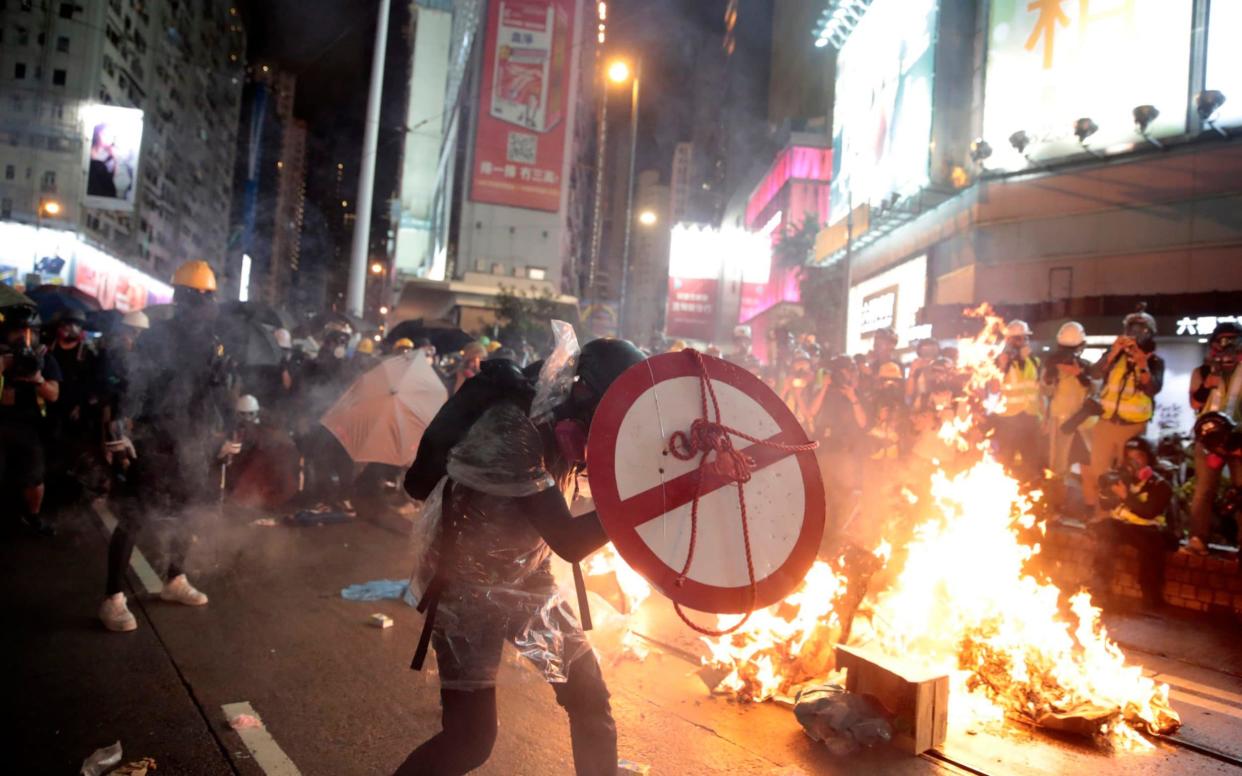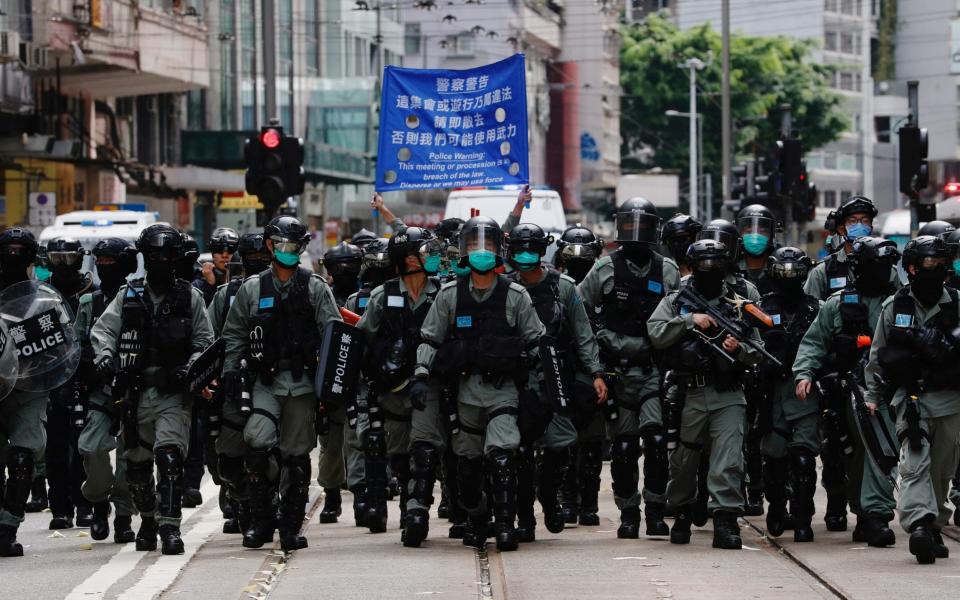WHO has shown 'yawning silence' to China's harassment of Hong Kong doctors, says leading medic

The World Health Organisation (WHO) has made humanitarian work more dangerous by its refusal to condemn the abuse of doctors in Hong Kong, a leading surgeon has said.
Darren Mann, who first exposed China’s tactics during last year’s protests, said WHO’s failure to stand up to Beijing had damaged the principle of protection for medical staff working under a red cross.
The British trauma expert said the “yawning silence” of the international body risked emboldening dictators and war criminals to target medics elsewhere.
It follows criticism levelled at WHO throughout the pandemic that it is unduly influenced by the Chinese regime.
Some experts have said that a reluctance to alert the world that Beijing was refusing to disclose information about the outbreak in Wuhan cost governments precious weeks to prepare.
Last November a photograph emerged from the protests at Hong Kong Polytechnic University showing more than a dozen individuals clearly identified as medical staff detained on the ground in handcuffs.

Details subsequently emerged of doctors being arrested in the middle of providing treatment, on the grounds of rioting themselves.
Police were also alleged to have hidden in ambulances in order to get close to the protesters, as well abusing the territory’s system of hospital patient codes to track down suspects.
Dr Mann, who took part in the treatment of people injured during the protests, recounted what he had witnessed in an article in the Lancet, which prompted an investigation by the United Nations.
Currently in the UK to help with the Covid response, he told The Telegraph that many doctors are in “despair” at WHO’s lack of condemnation.
“The WHO has not said anything to hold up the principles of the protection of medical volunteers working in compliance with the principles of impartiality and independence under the symbol of the red cross,” he said.
“What are the consequences to those victims injured in violent conflict globally if medical volunteers are no longer free to provide care at the point of need, if we accept a derogated standard of humanitarianism with Chinese characteristics?”
Dr Mann also criticised the International Committee of the Red Cross for putting it’s “access to mainland China” over standing up for the principle of medical neutrality.
The introduction of a draconian security law in May has further increased the intimidation of medical staff, due to the threat of long sentences for providing medical care to people deemed to be subversive to the regime.
Meanwhile, many people connected with the Hong Kong protest movement are now relying on healthcare from a network of underground clinics because they no longer trust the territory’s hospitals to keep their details private from the government.
“Academic and university staff are no longer able to speak out, even when it comes to professional differences of opinion over Covid, they're just too scared,” said Dr Mann.
In May Donald Trump announced his intention to withdraw the US from the WHO - led by former Ethiopian former minister of health and foreign affairs Dr Tedros Abhanom, accusing it of mismanaging the Covid response and of being under the control of China.
Joe Biden, the Democrat Presidential candidate, has promised to rejoin the body on his first day in office if he wins November's election.
Benedict Rogers, from the UK-based human rights group Hong Kong Watch, said: "The failure of the WHO and some other international and multilateral organisations to defend humanitarian principles and speak out against the arrest, harassment and ill-treatment of medics in Hong Kong is outrageous and extremely dangerous, given the precedent it could set.
“It is symptomatic of the disproportionate and morally corrupting influence of the Chinese Communist Party regime in many multinational organisations, which other countries urgently need to counter-balance and address."

